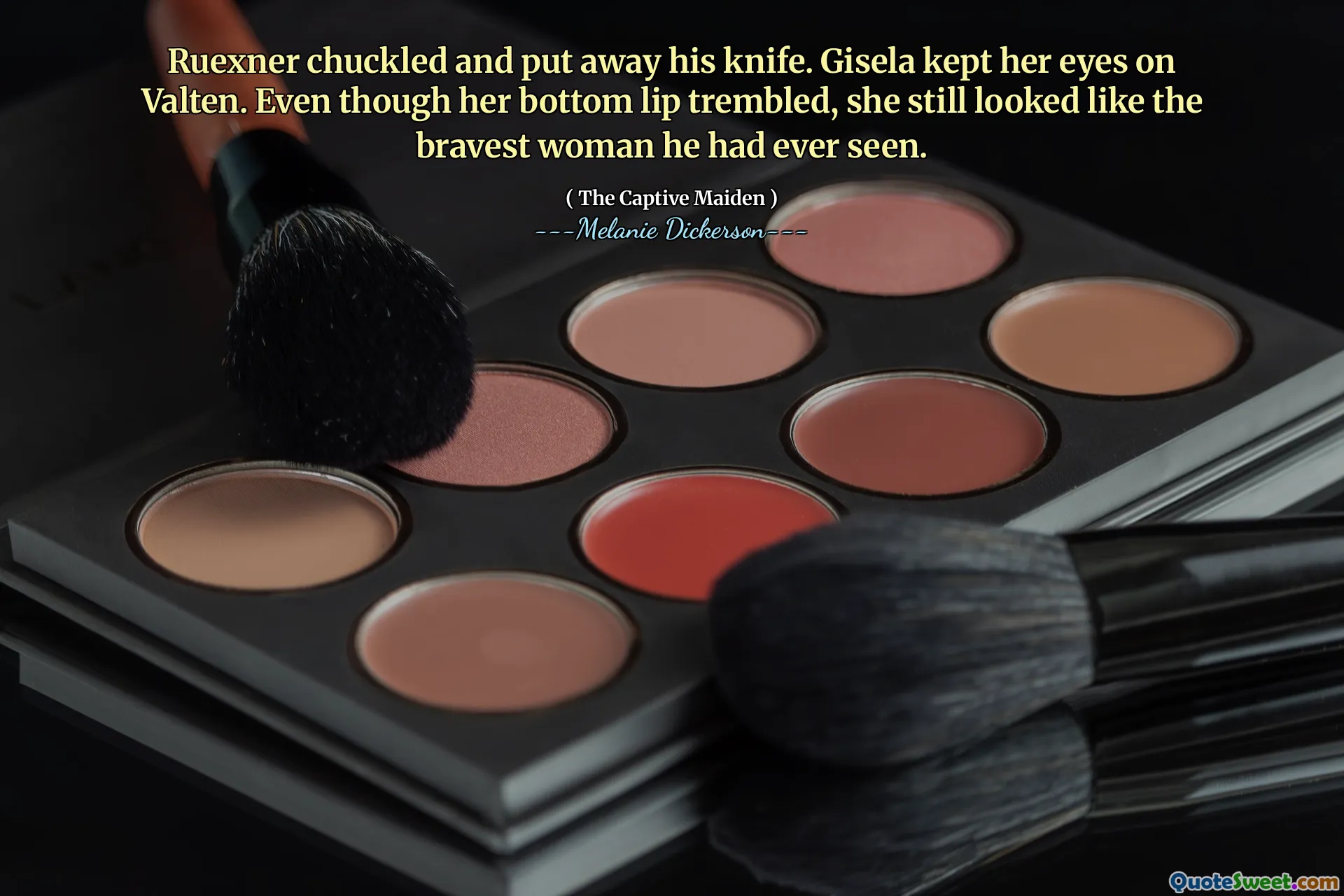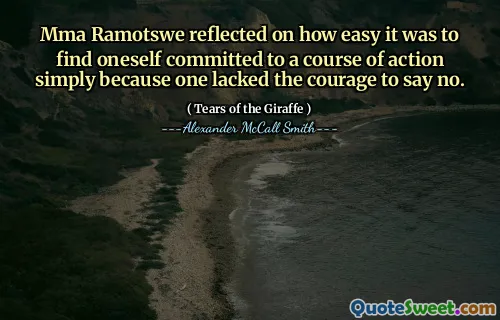
Ruexner chuckled and put away his knife. Gisela kept her eyes on Valten. Even though her bottom lip trembled, she still looked like the bravest woman he had ever seen.
The excerpt beautifully captures a moment fraught with tension and courage. Gisela's composed yet trembling demeanor reveals a profound inner strength despite her evident fear. Her unwavering gaze on Valten demonstrates her steadfast loyalty and protective instincts, emphasizing that true bravery isn't the absence of fear but the ability to face it resolutely. Ruexner's chuckle and putting away his knife suggest a shift in the interaction—possibly an attempt to de-escalate or assert dominance—yet Gisela's reaction underscores her resilience. This scene exemplifies the nuanced nature of heroism, especially within a setting laden with danger and uncertainty. It reminds the reader that courage takes many forms: the quiet resolve of someone who continues to stand firm despite emotional turmoil. Melanie Dickerson skillfully depicts this complex interplay of emotions, highlighting that vulnerability and strength are not mutually exclusive. Such moments serve to deepen character development, inviting readers to reflect on their own encounters with fear and bravery. Gisela's courageous facade, gleaming through her trembling lips, makes her a symbol of inner fortitude, inspiring us to act bravely in the face of our own challenges, no matter how daunting they may be.


